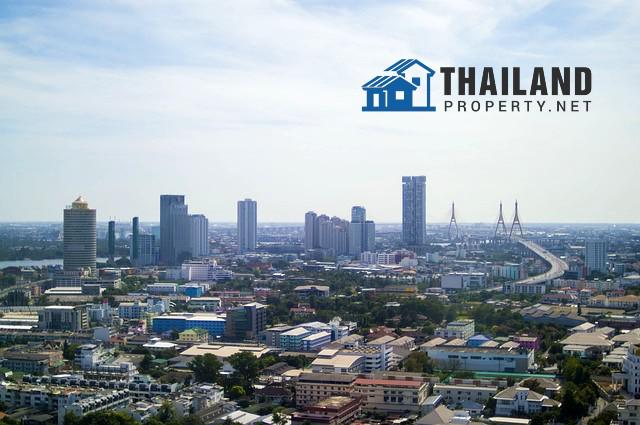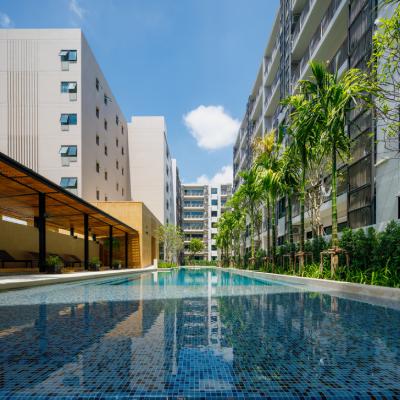
Thailand-property.net

Thailand-property.net
Thailand-property.net
Real Estate Thailand: Where to Start
Thailand’s growing real estate industry offers several opportunities for homebuyers, homeowners, investors and developers. Whichever sector you belong to, real estate Thailand is open to all though subject to certain conditions.
If you have other plans besides buying a home, then you may want to consider leasing out your property. The leasing fee tenants pay you on a monthly basis can very well make for a good passive income. There are many ways to add to your earnings through real estate.

In Thailand, foreigners are allowed to buy an investment property in the form of condo units. They cannot own real estate, however, but may be able to lease it upon presentation of a valid visa.
Whether you are a foreigner or a Thai national looking to buy property for investment or personal purposes, there are rules you need to follow. To succeed in your real estate journey, we suggest the following:
1. What’s your purpose?
Before starting any project, you should ask yourself what you hope to achieve in the long run. That is why you should be able to identify your place in Thailand’s real estate sector.
Is your goal to purchase a commercial or residential property? Or maybe you have a spare condo unit that you rarely come home to. Perhaps you want to have your own real estate buy-and-sell business or become a broker.
Whatever your reasons, you need to be clear about them. By setting up smart goals, it is easier for you to make your way around your chosen field.
2. Have you discussed your plans with a real estate expert?
Thailand’s real estate industry is populated by both foreign and local experts who can give you sound advice and recommendations. Real estate can be pretty saturated if you do not know where to look.
You need to sit down with property specialists and let them know where you’re likely to purchase a property for sale in Thailand. Or, if you have an existing property for rent, seek advice on which target demographics to aim for. You may be accepting the wrong tenants, who – heaven forbid – may end up complaining about your leased property.
3. Protect your real estate investments
Regardless of your purpose, buying real estate in Thailand is by itself already a form of investment. You allocated a large sum in hopes of getting something in return – either the opportunity to expand your income base or have peace of mind.
Protecting your real estate Thailand investments means:
(1) You will do your research (i.e. read about laws, policies, requirements, etc)
(2) Calculate your estimated cash inflow and outflow to reduce losses
(3) Work with a tried and tested Thai property specialist
(4) Avoid buying properties on a whim
(5) Advertise your property for rent or sale on Thailand property portal websites
(6) Insure your property in case of calamities or other events beyond your control
(7) Apply for one mortgage loan at a time
(8) If you decide to be a landlord, legally register your home leasing business

 In limbo between a sluggish economy, growing household debt and excess supply, 2019 presented quite a challenge to Bangkok's ...
In limbo between a sluggish economy, growing household debt and excess supply, 2019 presented quite a challenge to Bangkok's ...  It seems this year will be a good one for Hua Hin's real estate market. SET-listed Charn Issara ...
It seems this year will be a good one for Hua Hin's real estate market. SET-listed Charn Issara ... 
